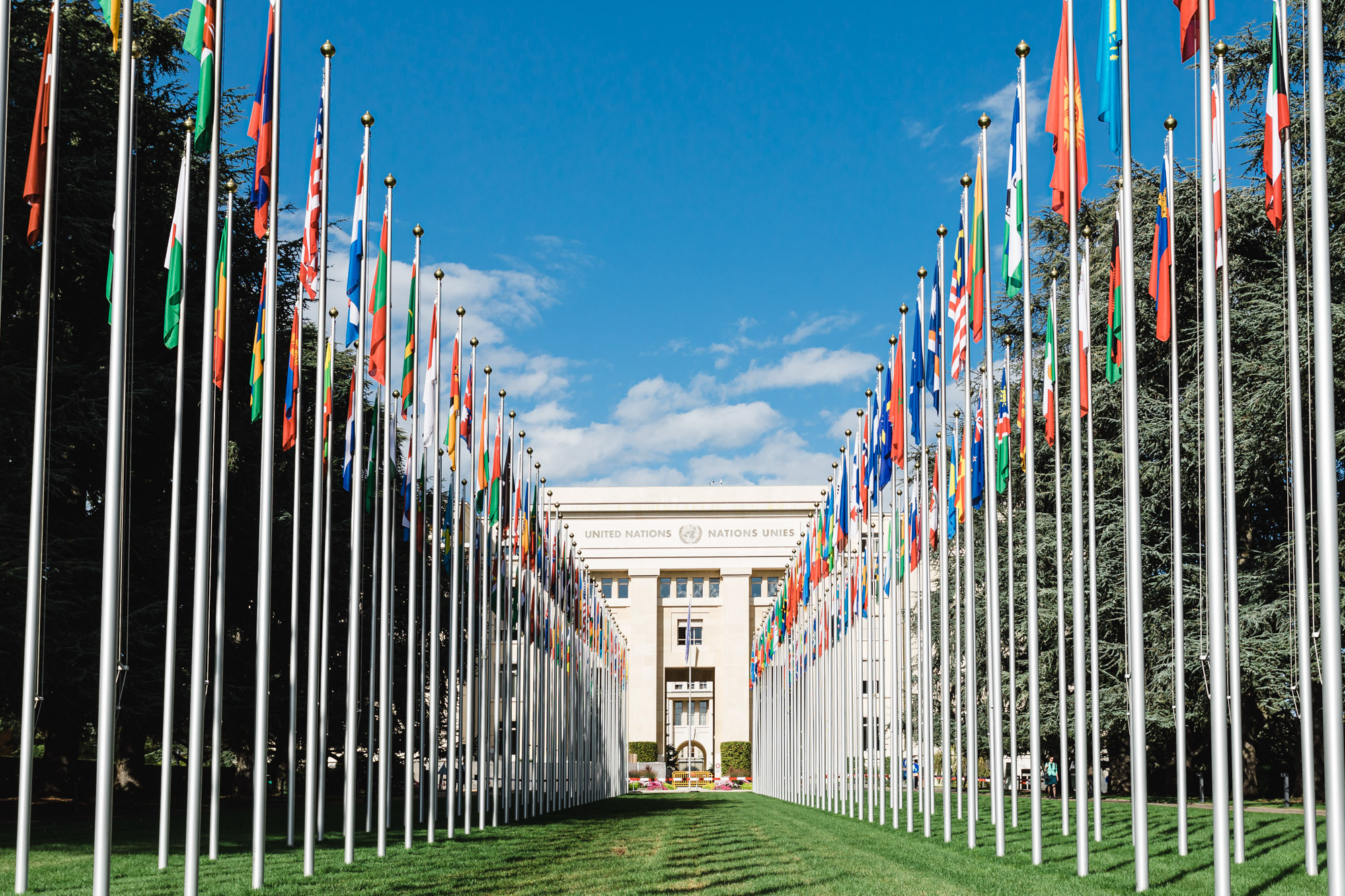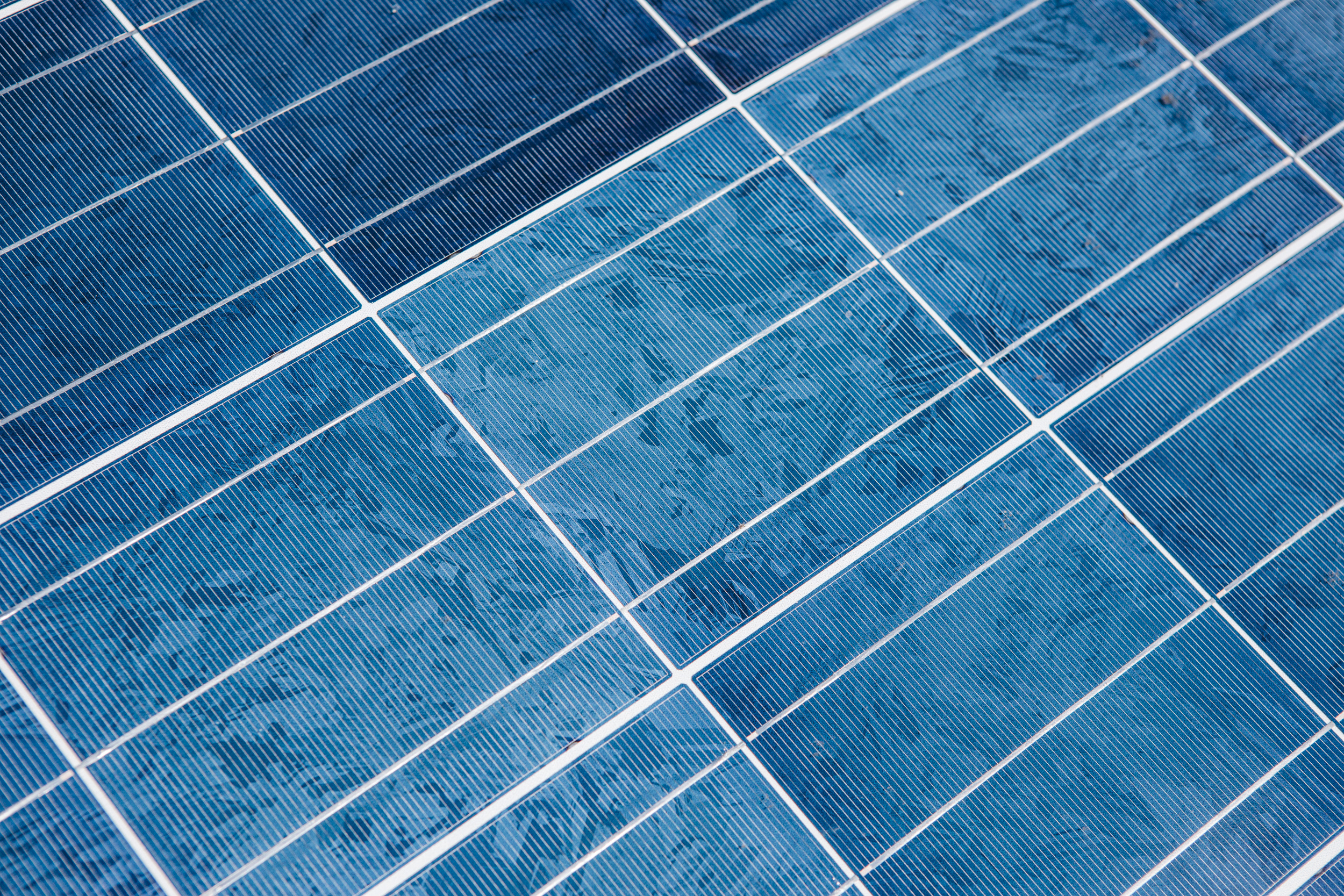What would a sustainable economy look like? Drought, COVID and multi-risk assessment. International investment agreements and climate action. Fossil fuel subsidy reform: Moving from commitments to action. Universities in the face of climate change and sustainability. Climate change: A threat to human health. Discover these and more online events of the week!
Subscribe to Climate Online’s newsletter to be reminded about weekly event updates by e-mail:

Biodiversity & Environment
1 – 4 February
“Second International Conference on Environmental Peacebuilding” by Environmental Peacebuilding Association
Throughout the four days there will be plenary sessions, an awards ceremony, breakout sessions, networking events, and training courses. The conference will bring together researchers, practitioners, decision-makers, and others to examine diverse dimensions of environmental peacebuilding. The agenda includes 5 training sessions and 78 panels and roundtables, with 330+ experts from 60+ countries. In addition to traditional panels and a poster session, the conference is highlighting a diversity of tools and approaches, with a photographic exhibition, networking events, a screening of a film, a resume review workshop, and other dynamic sessions You can find even agenda here and recordings of the conference sessions here.
2 February, 14:00 – 15:30 CET
“Drought, COVID and Multi-Risk Assessment” by Food and Agriculture Organization – FAO
Droughts cause deep and multi-faceted damages to ecosystems, (agro) economies and societies, particularly to vulnerable rural people in developing countries. The global climate crisis, fueled and exacerbated by man-made changes, and the weakening of ecological functions increases the severity of drought events. The webinar examines these challenges and aims to improve our understanding of multi-risk assessment starting from the work of WASAG group on “drought and COVID”. The webinar will present an overarching understanding of the linkages through insights from experts on the conceptual framework, research and insights from policies. The Webinar brings together stakeholders from international and multilateral organizations, research institutions, development partners and policy-think tanks, with the common agenda to enhance the multi-risk approaches to drought. Register here.
4 February, 17:00 – 18:00 CET
“Effectiveness-equity tensions in efforts to achieve zero-deforestation in the tropics through corporate supply chain policies” by University of Oxford and ETH Zürich
Despite a growth in global conservation and restoration commitments, tropical forests are disappearing faster than ever. The goal of this research is to advance our understanding of the conditions under which forest-focused supply chain policies (FSPs), a form of voluntary environmental governance, can lead to improved conservation and livelihoods in the tropics. Dr Garrett will present work examining how differences in supply chain structure and public governance context influence the effectiveness and equity of supply chain policies focused on the 4 major forest-risk commodities: beef cattle, oil palm, soybeans, and cocoa. The research draws on replicated methods across Brazil, Indonesia, and West Africa to lend new insights into the contextual reasons why supply chain standards succeed or fail in their conservation goals.

Climate Science & Policy
1 February, 16:00 – 17:00 CET
“Investor net zero targets & climate action plans: The road from COP26” by United Nations Environment Programme Finance Initiative – UNEP FI
With trillions of dollars in AUM committed to Net Zero at COP26, this Investor Agenda webinar will provide an update on how investors can operationalise and report on progress against net zero goals across the institutional investment chain. This session is designed for asset managers, asset owners, and investment consultants who committed to the Net-Zero target and are now creating Climate Action Plans to implement these commitments across their businesses. This webinar will be useful to anyone who has a Net Zero target or those who want to make this commitment with integrity, ensuring targets enable a transformation of the real economy in line with Paris Agreement goals.
2 February, 16:00 – 17:00 CET
“Climate Change: A threat to human health” by Stanford University
Changes to the Earth’s temperature and weather are not just a political and economic challenge. They also threaten human health, creating risks for infectious disease spread, unstable food supplies, and deaths from extreme weather events. Join for the next Health Policy Forum to learn how human health can be protected in the wake of climate change with our guests Marshall Burke and Erin Mordecai of Stanford University and Kiran Savage-Sangwan of the California Pan-Ethnic Health Network.
4 February, 13:00 – 16:00 CET
“International investment agreements (IIAs) and climate action” by International Institute for Environment and Development – IIED
This event will bring together experts and stakeholders from government, international organisations, civil society and academia to discuss the reform of the international investment agreements (IIAs) regime for climate change goals. The objective is to share views, experiences and practices on how to ensure that the IIA regime does not hinder governments from implementing measures to mitigate climate change and accelerate a transition towards green investments. It will also explore solutions for making existing and future IIAs more conducive to investments that have a positive contribution on the Sustainable Development Goals.

Renewables & Energy Transition
31 January, 10:00 – 11:00 CET
“South Africa’s Energy Fiscal Policies” by International Institute for Sustainable Development – IISD and Trade and Industrial Policy Strategies – TIPS
This webinar will provide participants with a first look at findings from IISD’s report ‘South Africa’s Energy Fiscal Policies: An inventory of subsidies, taxes and policies impacting the energy transition’, presenting key takeaways and recommendations. Through a panel discussion and a Q&A session, participants will be encouraged to engage in a debate on carbon tax, bailouts, and what international moves to phase out fossil fuel financing and oil and gas exploration mean for South Africa.
31 January, 17:00 – 17:30 CET
“EnergySource Innovation Stream with Native Renewables: Advancing clean energy access for Indigenous people” by Atlantic Council
Many Indigenous communities in the United States face insufficient access to affordable and reliable energy. Although 80% of fossil fuels are located on or near Indigenous peoples’ lands, many Indigenous families are left without access to this energy as it is largely transported out of the production area. During the event Dr.Suzanne Singer, co-founder of Native Renewables, will discuss the latest advancements in providing off-grid photovoltaic systems to rural Indigenous communities in the Navajo Nation.
1 February, 10:30 – 11:30 CET
“European Electricity Review” by Ember
Join energy think tank Ember to dissect EU electricity trends in 2021. The European Electricity Review compares electricity generation in 2021 to benchmark pre-pandemic levels in 2019, providing the first insight into how the gas crisis is affecting the region’s power sector after its recovery from the pandemic. There will be a presentation from the report author, Charles Moore, followed by questions.
1 February, 14:00 – 15:30 CET
“Fossil Fuel Subsidy Reform: Moving from commitments to action in 2022” by Friends of Fossil Fuel Subsidy Reform – FFFSR and International Institute for Sustainable Development – IISD
Despite long-standing commitments in international forums, governments around the globe continue to spend hundreds of billions each year to subsidize fossil fuels, further encouraging the wasteful consumption of fossil fuels and slowing the uptake of clean alternatives. 2022 must be the year that governments shift from commitments to action. This virtual event will provide an update on the current state of fossil fuel subsidy reform and look at what to expect in this pivotal year in international climate change diplomacy. During this session, government representatives from the 2022 G7 and G20 presidencies will present how fossil fuel subsidy reform and the clean energy transition fit into their agendas.
2 February, 10:00 – 11:30 CET
“The European Commission’s new Gas and Hydrogen Package” by Florence School of Regulation – FSR
The European Commission has tabled a comprehensive set of proposals to regulate the emerging low and zero-carbon hydrogen market, covering GOOs and certification, tariff rules, unbundling and TPA, blending, grid financing, consumer rights as well as new measures regarding gas security of supply. The debate seeks to consider what will be the effect of the new rules in practice, how the gas and hydrogen grids will interact, and to discuss what will be the most contentious parts of the package.
2 February, 16:00 – 17:00 CET
“Rethinking the Role of Financial Transmission Rights for Renewables” by International Association for Energy Economics – IAEE
In the United States, most wind power capacity has been deployed in the wind-rich central region. Transmission congestion within this large region causes spatial variation in wholesale power prices—called the basis—that can unpredictably reduce wind plant revenue and, hence, possibly slow deployment. We use historical pricing and generation data from three central U.S. markets to show that wind plants are more-susceptible than thermal generators to congestion-related basis risk. Moreover, while most thermal generators can effectively hedge any basis risk by purchasing conventional financial transmission rights (FTRs), these fixed-volume FTRs are not a good match for variable wind generation. More-effective hedging mechanisms—for example, an FTR whose volume varies with wind plant output—may be required to support those generators most-impacted by congestion, and to promote continued investment in variable generation resources in congested markets.
3 February, 14:30 – 15:45 CET
“EU Methane Regulation: How can policymakers raise ambition?” by Euractiv
Join this virtual conference to discuss how the EU can tackle energy sector methane emissions and reach its 2030 climate targets and the 2050 climate neutrality goal. Questions to be discussed include: (1) Are the proposed methane measurement, monitoring and mitigation requirements enough to address Europe’s methane problem? (2) How can the EU lead the way on reducing methane emissions at a global level?
3 February, 16:00 – 17:00 CET
“Bringing Breakthrough Technologies to Market: Evidence from UK Renewable Energy Projects” by University of Oxford
Policies to reduce investor risk may be an important component of helping breakthrough technologies scale-up in a timely manner, which in turn can help avoid acute societal crises. Due to the irreversibility of many investments, firms often have a “rational reluctance” to invest immediately in risky projects and there is an option value to waiting. However, this delay in investment is sub-optimal if the technologies in question generate large positive externalities or reduce negative externalities. As pandemics and extreme weather events have shown, there is significant social value to early, pre-emptive investments. Join to discover how a policy that reduces the uncertainty of future revenues brings breakthrough clean technologies to market.
4 February, 9:30 – 10:45 CET
“Ensuring the effective integration of hydrogen within the EU’s energy system” by Euractiv
In December 2021, the European Commission published the Hydrogen and Decarbonised Gas Market Package with the aim to decarbonise the EU gas market by facilitating the uptake of renewable and low-carbon gases, including hydrogen, and to ensure energy security for EU citizens. Join this virtual conference to discuss the EU’s shift from natural gas to renewable and low-carbon gases, including hydrogen. Questions to be discussed include: (1) Will the new legislative proposals be enough to decarbonise Europe’s gas supply, and help the EU reach its 2030 and 2050 targets? (2) How can the EU ensure effective integration of hydrogen within its energy system?

Sustainability & Circular Economy
1 February, 14:00 – 15:30 CET
“UNEA-5.2 High Level Dialogue on a Global Instrument on Plastic Pollution” by Geneva Environment Network
At the end of the Ministerial Conference on Marine Litter and Plastic Pollution of September, Peru and Rwanda presented a first draft of a resolution to pave the way for an Internationally legally binding instrument on plastic pollution. This draft was intended to serve as the formal basis for the start of negotiations on a global agreement at the 5th UN Environment Assembly (UNEA-5.2) in February 2022. At the end of 2021, Japan also proposed a resolution for an International legally binding instrument on marine plastic pollution. Both resolutions call for quick negotiation in the lead-up to UNEA-6 to address the major crisis. With only a few weeks left before this major event in the global agenda of environmental governance, this dialogue will offer an overview of the preparations for the negotiations on this important matter. It will also be the occasion to reflect on the outcomes of the previous sessions of the Geneva Beat Plastic Pollution Dialogues.
1 February, 16:00 – 17:15 CET
“Universities in the face of climate change and sustainability” by Hamburg University of Applied Sciences
The lecture will outline general trends on sustainability in higher education, focusing on some of the most important areas to consider. The presentation will also cover some of the sustainability rankings used, and discuss the links between sustainability and climate change in a higher education context.
1 February, 17:00 – 18:00 CET
“How the Digital Transformation Acceleration Is Supporting Sustainability Goals” by Autodesk and World Business Council for Sustainable Development – WBCSD
The pandemic triggered an astonishing digital acceleration of up to 10 years, propelling us into a sudden future where more is possible.What could the leap mean for the sustainability goals of architecture, engineering, construction, and manufacturing firms like yours? Explore how leaders like you can use new technologies to achieve your sustainability goals faster and more efficiently.
2 February, 13:00 – 14:00 CET
“City Resilience Program : Supporting cities in building resilience” by United Nations Office for Disaster Risk Reduction – UNDRR, City Resilience Program and Making Cities Resilient 2030
This webinar aims to provide in-depth information to help cities, local authorities, and their partners understand better what the City Resilience Program is and how to access its support. It will include the information on the type of support provided, the eligibility criteria and relevant application process. It will also highlight some examples of the types of successful projects and key components of what makes these applications successful. Cities shall be equipped with necessary information should they be interested to apply for the City Resilience Program support.
2 February, 14:30 – 15:30 CET
“ESG in Emerging Markets: A Discussion with Leading Women from the Energy Sector” by Columbia University
Environmental Stewardship, Social Responsibility and Corporate Governance (ESG) have become the new standard of best corporate practices globally. The Center on Global Energy Policy’s Women in Energy program will host a panel of board directors and C-suite executives from different emerging market companies to examine the dual challenges of ESG compliance and energy transition readiness. The panel will discuss how ESG issues compare to the myriad risks that are inherent to operating in emerging markets, the challenges EM companies are facing navigating the energy transition vs. ensuring energy access, profitability and reliability, and the role women corporate leaders play in managing and addressing these challenges.
2 February, 15:30 – 17:00 CET
“Can agricultural policies deliver better value for money for people, the planet, and the economy?” by IFPRI
The massive support provided to agriculture by governments — $639 billion per year during 2016–18 — has not incentivized sustainable patterns of food production and consumption, leading to calls to “repurpose” this support. A new IFPRI-World Bank study shows that the present system of support, if left in place, would do nothing to staunch the rapid increase in global emissions from agriculture. Unfortunately, many seemingly appealing options for repurposing are either ineffective or involve harsh side effects such as raising food costs, poverty and agricultural land use. This seminar presented a summary of the latest IFPRI-World Bank research findings and feature speakers discussing the need for more rapid adoption of technological solutions that foster less emissions-intensive productivity growth across developed and developing countries alike.
3 February, 18:00 – 19:00 CET
“What would a sustainable economy look like?” by University of Oxford
Getting to the sustainable economy would be politically very difficult, but not doing risks lots for climate change and further considerable destruction of biodiversity. What would have to happen for this generation to live within its environmental means and to bequeath to the next generation a set of assets at least as good as it inherited? What would the sustainable economy look like? How do we stop climate change and biodiversity loss?

